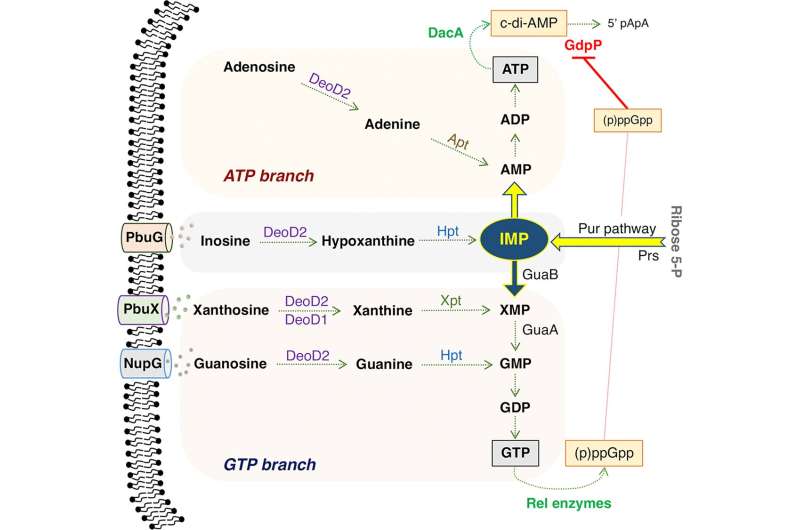This article has been reviewed according to Science X's editorial process and policies. Editors have highlighted the following attributes while ensuring the content's credibility:
fact-checked
peer-reviewed publication
trusted source
proofread
Scientists discover potential new method to treat superbug infections

Scientists at University of Galway delved into the issue of antimicrobial resistance—one of the greatest threats to human health—discovering the potential to improve treatment options for superbug MRSA infections using penicillin-type antibiotics that have become ineffective on their own.
The research has been published in the journal mBio.
Professor James P O'Gara and Dr. Merve S Zeden in the School of Biological and Chemical Sciences, University of Galway, led the study.
Professor of Microbiology James O'Gara said, "This discovery is important because it has revealed a potentially new way to treat MRSA infections with penicillin-type drugs, which remain the safest and most effective antibiotics."
The antimicrobial resistance (AMR) crisis is one of the greatest threats to human health with superbugs like MRSA placing a significant burden on global health care resources.
The microbiology research team at University of Galway showed that MRSA could be much more efficiently killed by penicillin-type antibiotics when combined with purines, which are the building blocks for DNA.
Dr. Zeden said, "Purine nucleosides, Adenosine, Xanthosine, Guanosine are sugar versions of the building blocks of DNA, and our work showed that they interfere with signaling systems in the bacterial cell which are required for antibiotic resistance."
This study was recently highlighted in the American Society for Microbiology's This Week in Microbiology (TWiM) podcast.
The discussion noted the drugs derived from purines are already used to treat some viral infections and cancers.
Aaron Nolan is a Ph.D. student at University of Galway and was co-first author on the paper. He said, "Finding new ways to re-sensitize superbugs to currently licensed antibiotics is a crucial part of efforts to tackle the AMR crisis. Our research implicated the potential of purine nucleosides in re-sensitizing MRSA to penicillin-type antibiotics."
More information: Aaron C. Nolan et al, Purine Nucleosides Interfere with c-di-AMP Levels and Act as Adjuvants To Re-Sensitize MRSA To β-Lactam Antibiotics, mBio (2022). DOI: 10.1128/mbio.02478-22
Journal information: mBio
Provided by National University of Ireland, Galway


















